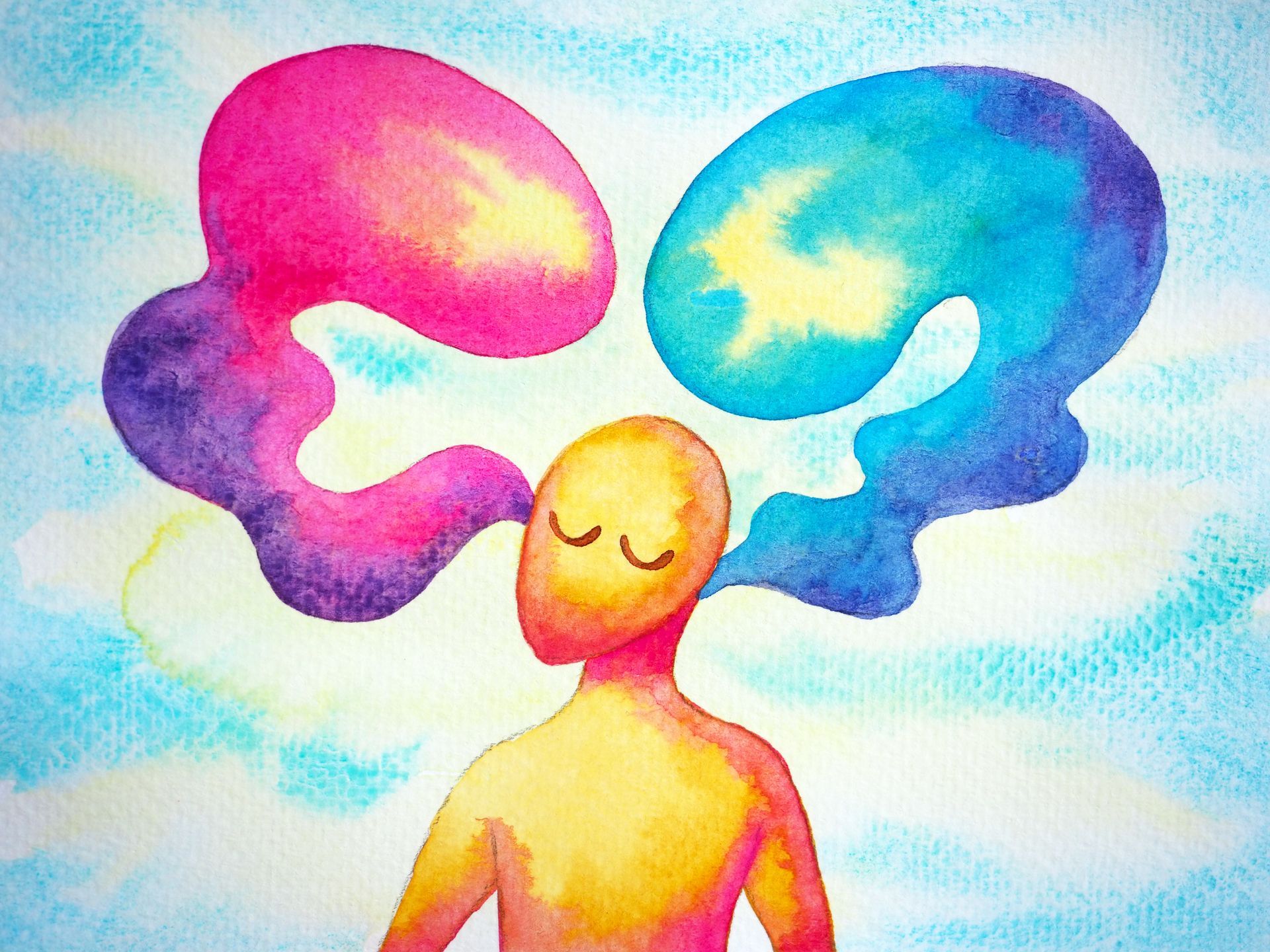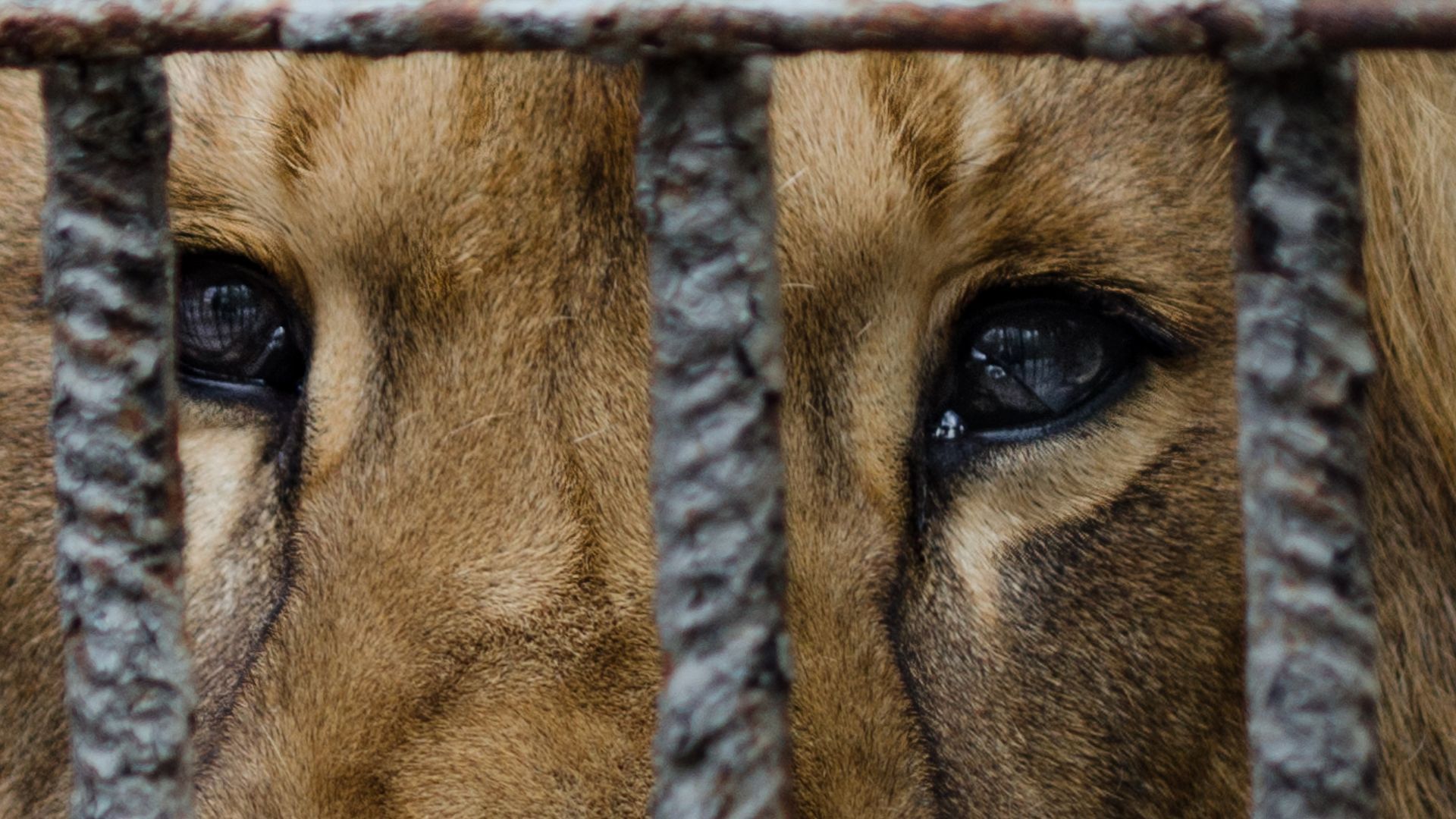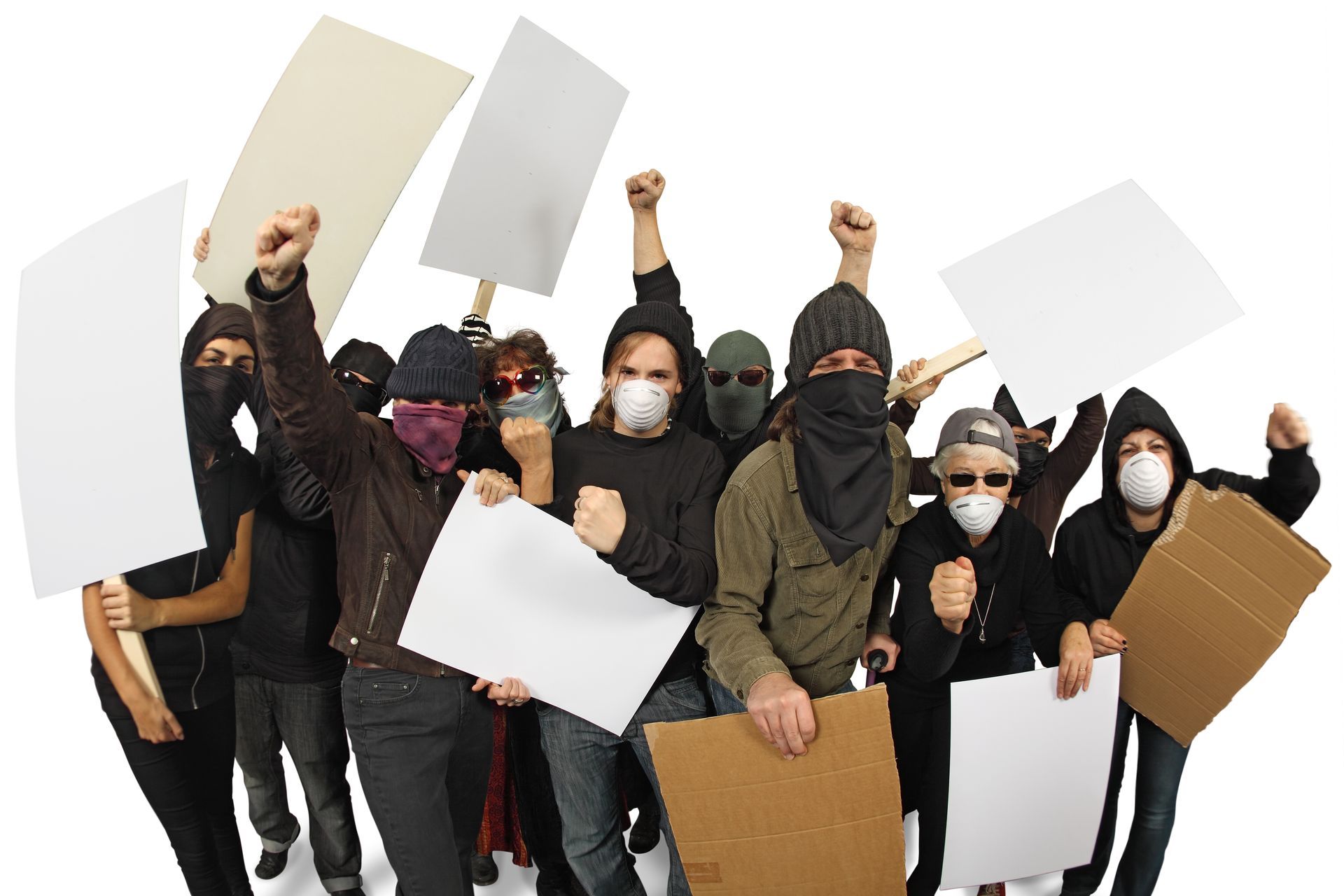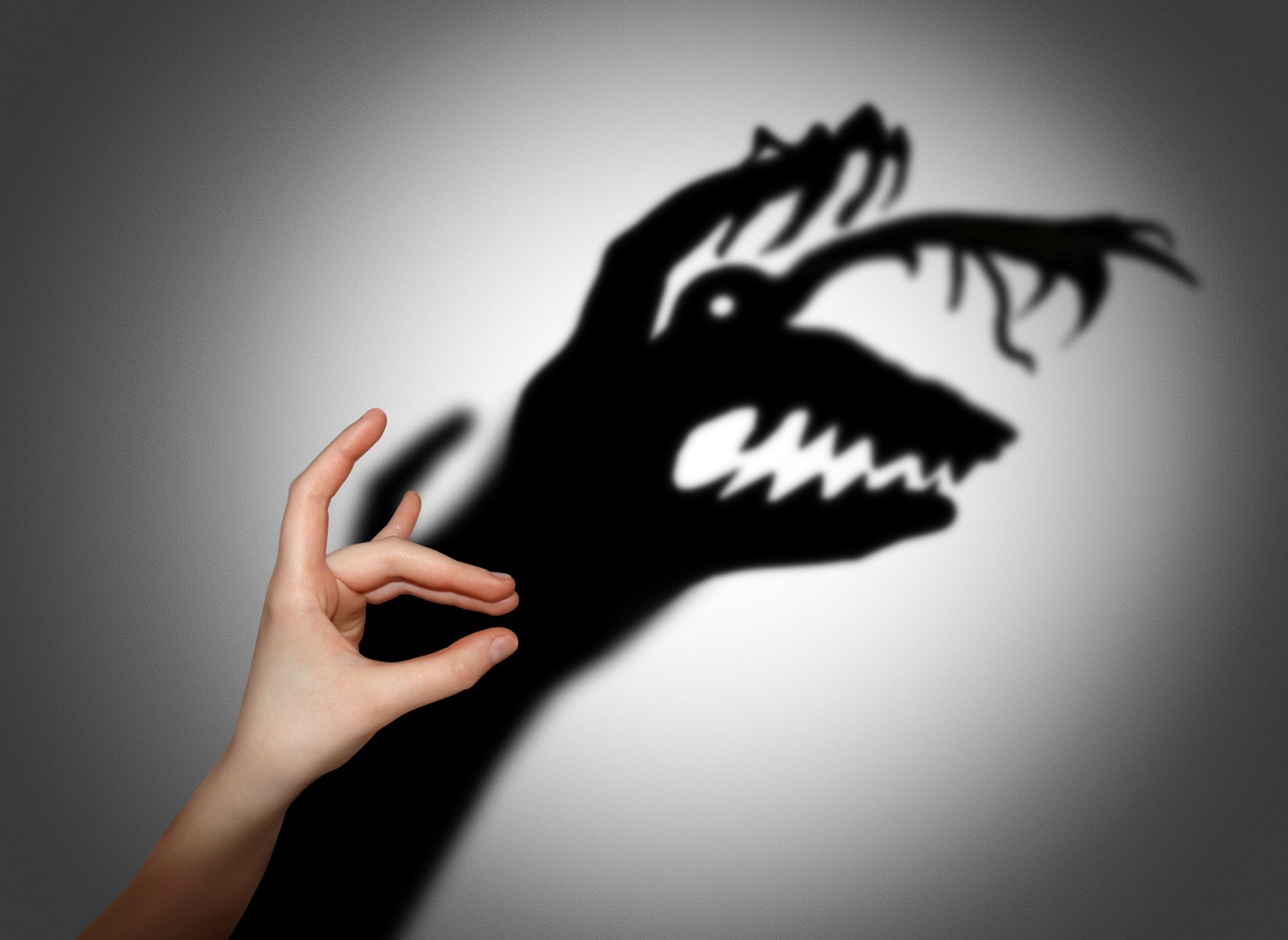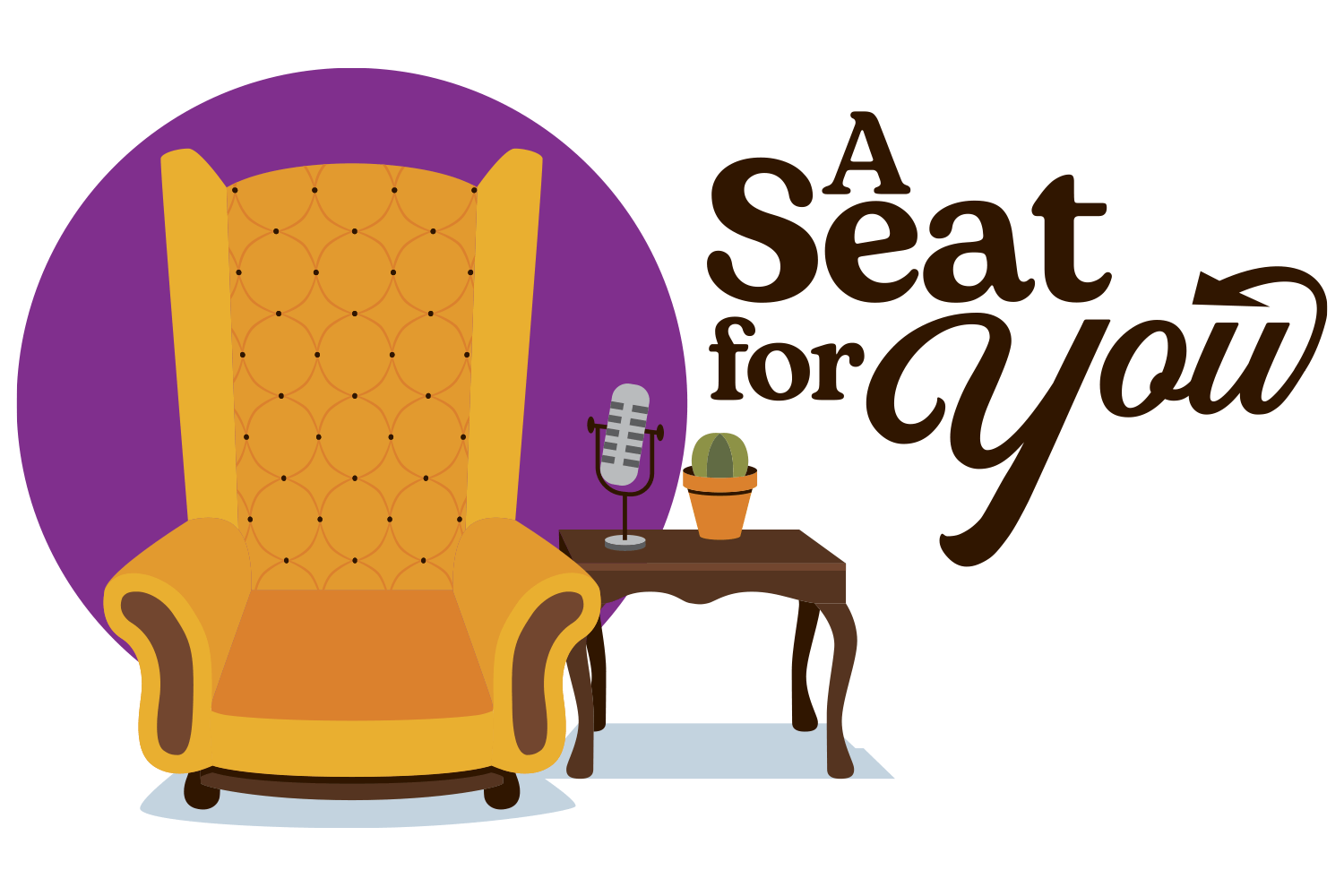Episode 1- No Turning Back, No Turning Back...
Leslie: [00:00:00] So April, what kind of journey are you on right now in life?
April: Well, I am on this journey of, I can't say deconstruction 'cause it's such a taboo word now, but I will say I am unpacking, I am unlearning, tearing down all of the systems. 'cause there's multiple that have been. A part of that I've upheld, that I've contributed in for more than four decades now, and trying to rebuild them in the healthiest way possible so that I can be a better servant, be a better human and raise my kids the same.
And that's difficult.
Leslie: So what, um, what got you to this point? Like why? You know, like you said, [00:01:00] deconstruction's a taboo word, but what really made you get to, to a point in your life that you felt something was not maybe right or clicking or something
April: like the light bulb moment?
Leslie: Well, just what sets you off on the, I mean, 'cause obviously you were going one way
April: mm-hmm.
Leslie: And then something happened and then you started
April: right. So what happened was, what had happened was, uh, I think I really started to question things when a specific human entered our political scene. And I was on the same path as pretty much all of my surroundings for a while until I started realizing and.
Um, through conversations with you, through conversations with others, and observation, just [00:02:00] seeing that, okay, this isn't right. Something's not right here. And ..
Leslie: So, so the Trump factor,
April: right? Yeah.
Leslie: So you were in a world that was, that you felt was, crediting or, or
giving, making Trump acceptable.
April: They were upholding this person as godly and promoting their Christian values with quotes in the air here. And meanwhile, like the real stories had nothing to do with any of that, and it was just really gross, I guess you can say, because the echo chamber is loud and seamless and. Um, I, I keep going back to the word gross because it's just kind of gross.
Leslie: Well, do you remember like, it, was there one specific thing that first made you feel like, [00:03:00] ew, like something's, I don't know, do you remember what that was?
April: I think so. I think I remember it was, it was during some, I think it was a protest where he had like made his way through chaos in the streets and basically made sure he got to do his photo op with the Bible in his hand.
Leslie: Oh yes, I know the protests you're talking about.
April: And that was like, that was it. That was it for me. And I think I had already kind of made a decision up to that point that I needed to, to start unpacking some things and, um, figuring out why did I believe certain things. But that definitely put the nail in the coffin for me.
Leslie: Hmm.
April: Because again, it was just gross.
Leslie: Yeah. He actually used, the Capitol Police, I think, and the National Guard to clear out a protest. Right. So that he could, so that he could walk to the, the church, I believe, was it the Ebenezer Church in Washington, DC maybe, and held up a Bible and he didn't even actually have, [00:04:00] uh, permission from the church to do that, like,
April: right. Yeah. I don't know. There's countless other examples, but that was probably. The main, the main one that I can think of at this point,
Leslie: so...
April: well, and then two, and this has been something that has always been a thing when election time comes, uh, most churches, at least down here in the evangelical space, will hand out a voting pamphlet, I think I told you about this.
Leslie: Mm-hmm.
April: And, A friend at the time, coworker, good friend actually showed me the, the pamphlet that basically said, if you are a Christian, these are the people that you vote for. And I'm looking at it and I was kind of like in shock. Not in shock because I mean, again, I've been around it for a long time, but I think the space that I had already come to, to like be reminded of it in that way. I was [00:05:00] like, oh my gosh. Like it was everything I could do to not like, put my head in my hands and be like, what have we done?
Leslie: So is they, have they done that like, for many years? 'cause, 'cause I...
April: oh yeah.
Leslie: And, and why, why before did you not question it?
April: Because it was a, it was, a guidebook and I, you know, I wanted to be a, a good Christian, a good, good little Christian girl. And so if this is what it takes, and I don't actually need to even really do my own digging. I can just look at this pamphlet and I know that I'm doing the right thing.
Leslie: Mm-hmm. So you put your trust and faith into the church
April: right? Into, you know, what, what the conservative would vote for, what the Christian would vote for, what, you know, whatever.
Leslie: I remember that day that you, um, had told me that you got handed this pamphlet and I was just like, What? Like, like what?
April: Yeah.
Leslie: I didn't even know these things existed.
April: Oh yeah.
Leslie: I mean it's so, I don't know, kind of fascist, I guess, to, to [00:06:00] tell your people, like, like you just said, you don't even need to think.
April: no, you don't. You just get told to know how to, you know, go to these people's websites or know what they actually stand for. All they have to say, and I think I was telling you this for this past election when I was going to, Each person's platform and trying to understand what each person was standing for to do my own digging.
There were some that I could go to their page and it was completely laid out for you. This is what I'm here for. This is why I'm here. This is where I came from. This is why I'm credible, you know, great things. And then you go to somebody else's who would be someone on this pamphlet and it would be like, I love Jesus and I put my family first.
And, I hold Christian values and basically that's all. And that's all they have to say for, unfortunately for the majority of the, you know, the right, that's all you have to say. And I'm not saying that's that's for [00:07:00] all of, you know, the right side or conservative people, but. Unfortunately that's, that's all you have to say then to acquire the Bible belt.
Leslie: Mm-hmm.
April: That's all they need to know. And that Trump knows that Trump isn't stupid. Trump's a people person. He's a businessman. He has been for his whole life. He was born into knowing exactly how to work people.
Leslie: Mm-hmm.
April: And he has used it to his advantage.
Leslie: Mm-hmm. So why do you think now? Like, because like you said, you've been handed this pamphlet all through your life and, and, and you said you saw, you know, the Trump thing going to the church now that happened in 2020. That was, yeah. So that was
already four years later.
Right. So you apparently were either not paying attention or just felt like it wasn't something you needed to pay attention to [00:08:00] because whoever ...
April: right. Well, it's like the, the frog and the boiling water. You know, like you, you dip your toe in a little bit and you can see some things here and there or whatever, but you just kind of ignore 'cause nobody's perfect. You know, and then like little bit by little bit, it's gradual.
Leslie: Mm-hmm.
April: And then before you know it, You've, invested four years and then suddenly something happens where it clicks, and then you're able to have hindsight and look back and be like, oh my gosh, what have we done?
Like, what have we done? And I think why now? It's because I've never seen, and I'm not like super old, but I've been through a lot of elections. I've never seen the division at this level of intensity before, and not even amongst like right and left. It's amongst. The people in the same party or whatever affiliation, it's people within the church, you know, specific churches.
It's, it's, it's just so [00:09:00] hot and cold and divisive. Everything is so divisive. Like, if you believe this, then you must not be, a Jesus follower by any means. If you're a Democrat, you definitely can't be a a Jesus follower, which is completely... Insane.
Leslie: Mm-hmm.
April: So I think there was just a breaking point, you know, the last straw, and I was able to then have the hindsight to look back and see all these things that now connect.
Now they make sense, and I'm just trying to kind of like re-piece back, you know, what it could look like or should look like, at least in my world, because I can't control everyone. I can't control, you know what people in my previous circle and still kind of same circle, believe or think or how they carry themselves or how they treat people.
I can't control that. I [00:10:00] can control me. I can and I can have control over how I parent my, these humans that are gonna be our next round of voters and contributors to society. And. Uh, that's gotta be the most important thing, you know?
Leslie: Yeah. So what, how did you do it? Like, what's, what was your first step in the process?
I mean, you, you saw the, the situation that you, you know, saw on TV or on social media or whatever, and you questioned something, some, you know, something clicked in your mind. So what, where does someone even begin? Like...
April: well, you have to begin by looking in the mirror.
Leslie: So when someone sees something that makes them question or makes 'em feel a little off, you know, where do they even begin?
Like how did you begin this next phase of your journey that you're like in right now?
April: I think you have to look in the mirror, and look at the ways that you've contributed [00:11:00] to these same things or things you've believed. Down to like, I think you kind of have to work backwards. So you start with the most like, obvious things in your life and then you kind of just get a little, little deeper as you're able to, and sometimes that requires therapy.
Sometimes it requires, help for sure from, from friends and, you know, people that you trust. It requires conversations with. You know, people who don't always think like you. Um, I think there's a lot of work involved if you're willing to put it in. But if you're, if you want to be that person and you wanna continue to grow, you cannot be content where you're sitting.
And I was not content with how things were playing out, and I wanted to get to the bottom of what doesn't feel right, what specifically doesn't, what is off here [00:12:00] and it is foundational in this whole system.
Leslie: Mm-hmm.
April: The foundation at its core has a big nasty crack in it.
Mm-hmm.
And so the only way to do that is to, is to tear it all down.
And what's funny is like one of the things you're taught as a child in church is to build your house. It's the wise man. There's a song, the Wise Man Build his House upon a rock. The foolish man builds his house upon the sand. You know, and meaning, you know, if you build your house with a rock, it's not gonna fall.
You build your house with sand, obviously it's gonna get blown over easily referring to your faith, like you build your faith with a strong foundation
Leslie: mm-hmm.
April: And this foundation is not on a rock, or maybe it's the wrong kind of rock, I don't know.
Leslie: Mm-hmm.
April: But there's a big old crack in it and it, the whole thing has to come down.
Leslie: Mm-hmm.
April: But it's getting people to see it [00:13:00] themselves. That is gonna be the hardest work of All .
Leslie: Right. So when you say that, like really though both of our journeys in life, you mentioned just a minute ago, you know, you can't control other people.
Right? Right. So, It has to be about yourself.
April: Yeah.
Leslie: Right. So if you're comfortable, 'cause I know that you've said before that, you know, using the word therapy or educating yourself in different spaces or reading different kinds of books, you know, those are also very taboo things in, in the church. And so how do you know, how did you handle, I'm sure the overwhelming feeling of shame or guilt or like you're doing something wrong. Like what was that inner thing that made you say, you know what, I'm going to check this out. [00:14:00]
April: Well, I wouldn't even say that. I'm like, I wouldn't even say that's in the past yet. Like it is still something that I have to consciously, work on all the time because.
It, it, it does matter, you know, to me, or it has mattered in the past what people thought of me and I've had to learn that I can't care, I cannot put that energy into people and what they think of me, because that's not, it has nothing to do with me what they think of me. And I had to learn that. And it's, it's always gonna be, I think, an ongoing learning process, but it's getting easier.
But I think what the resolve has been is that I cannot, because my health has, you know, over the years with just with, you know, everything that has transpired in my life in the last decade or so, it's not good for your health to carry that much stress, [00:15:00] that much anxiety, that much worry on a daily basis. It's, it's heavy.
Leslie: Mm-hmm.
April: And it's exhausting and you don't even realize how heavy it is until some of it is lifted. Not even, all of it doesn't even take very much. But when some of it is lifted, like the day that I decided to walk away from my current church that I've been a part of for, more than a decade in, you know, playing in the worship team for over two decades, almost three probably. And to walk away from that part, you know, it's, it's very difficult. But the day that I did that, or just made that decision to where I'm gonna allow myself to have that space to figure this out, and I don't need anyone's permission to do that, I automatically felt lighter.
I literally, I felt lighter in that very moment.
Leslie: Mm-hmm.
April: [00:16:00] Because the anxiety was lifted and that should, that tells you a lot.
Leslie: Yeah.
April: It's very telling how much stress and anxiety or having to walk into this place and be somebody else. Hmm. And that's what was causing it was me walking in and hoping that I was the person that everyone thought that I was.
Leslie: Mm-hmm. Because there's like so many different expectations that you have to live up to.
April: Right. Right.
Leslie: That's what it kind of seems like with religion in general. You know, it's, I didn't go to church growing up. I mean, very little. I did when I was little, like five, six year old years old, you know, one of my grandmothers, we would, if I was out at her house on a Sunday, we would go up to the church or whatever.
I remember going to Sunday school.
April: Mm-hmm.
Leslie: I don't remember too much about it, but I do remember the process of it and I just, Uh, always like through [00:17:00] my teenage years or seeing different things about different, churches and religion and, and scandals that were going on in churches and how church people acted.
You know, when they were in church versus when they were outside of church. And it always seemed like a show like you put on your Sunday best. And you have to get dressed up and you have to look a certain way and you have to play this part,
April: right..
Leslie: And you have to go into this building where pretty much you are very comfortable and safe because everyone looks like you and they're also playing their part,
April: right?
Leslie: And they're all dressed up. And you know, as soon as that clock strikes noon, then you're off to lunch, or people brought the potluck to the thing and you sit around then have lunch. With everybody and it's, it, it felt like the longest day ever as a child. 'cause I just wanted to go home and get out of this stupid dress and play [00:18:00] outside. Right. And, but it all, but I mean, that was something that always stuck with me and I think in the back of my mind is why I never really took religion as serious. Because everybody that was in it seemed fake.
April: Right.
Leslie: You know, and, and even. When you and I started talking more about, about it and the questions that I would ask you, it was like, that doesn't, like why do you do this?
Like, what, what are you, teach me something. Tell me what, you know, why I should be involved in this or why it should be important to me, kind of thing, you know?
April: Right. And and it's hard because I had a, a wonderful childhood and I loved. Going to church when I was younger. And I, I mean, when I was in college, we lived up there 'cause we had community with each other and it was not so much about the church, you know what I mean?
It was more about our community together [00:19:00] and we were able to sit and have conversations that were, you know, related to Jesus or, you know, other things going on in other people's lives. And that was, that was a blast. So I don't wanna say that like, The whole thing was a bad experience because when you're in it, you don't see any of that.
But what I can see now from the outside looking in, not that it was anything bad, but what I was upholding and contributing to, I did not have anybody else outside of the bubble to tell me anything different. I didn't know that anything I was doing could be possibly harming someone else because how could it be?
I'm, you know, I love Jesus and I'm there to, to work and to serve and how, how could that be bad? But what I didn't understand was like part of the system I is made to hold other people down and keep 'em there, [00:20:00] you know? And I didn't know that at the time.
Leslie: Mm-hmm.
April: I do remember, like, I do remember. Membership was super important.
And like if somebody called in the neighborhood and say they needed some financial help or they were in dire need, if they were not a member, we would not help.
Leslie: Hmm.
April: And a lot of churches are like that. And it doesn't make a ton of sense. They'll, they'll try and make sense of it to you. They'll have a reason. They've got answers for everything.
Leslie: Mm-hmm.
April: Uh, but like it doesn't really sound like Christlike to me. Right?
Leslie: Doesn't sound like what Jesus would do
April: now with, with the, you know, the church that I left recently, that wasn't the case. If anybody called and needed a mortgage paid or light bill paid or a car, it didn't matter who they were. So that was, that was a good [00:21:00] thing. And a lot of churches will do that too, but,
Leslie: Probably more often, not,
April: probably more often not 'cause it's more exclusive.
Leslie: Yeah. That's, it's the country club mentality. I wanna go back to something you said just a minute ago because I, I, I don't think that, that it's, it's about your childhood being bad.
Like you said, you know, I don't wanna label it as it was bad. I had a great time and I, wanna make sure that. That, that's not where we're at. I think in general, we should probably stop saying something is good or bad because it's just, it is, it is what it is, right? It's the experience that you're having, like you're gonna have a gr a different experience growing up where you grew up than someone growing up in, in Brooklyn.
You know, a very different experience than someone growing up in London.
April: Right.
Leslie: Or someone growing up on the Serengeti in Africa or in Australia. And it does, it's not to say that any one of those [00:22:00] experiences are bad growing up, it just is what you went through.
April: Right
Leslie: right. And so I don't think we have to, I give extra credit to something that when we look back at it now, it may not have been like if you had to do it over again, maybe you would do it differently kind of thing, but I don't think we should give any power to saying that that was bad for me or, well, it, I did have a good time, so maybe it wasn't all bad. Or like, I just to me it doesn't even make sense to label it as any one thing because it's what got you to the point,
April: right,
Leslie: of who you are today. So there's no, it's not really, it doesn't really matter that much to give it. Any extra power to say, well, I wanna bring that part of my past. You know, it wasn't all bad, so I'm gonna keep keep some of it. Of course, you're gonna keep things from your past, right?
Right.
Of course [00:23:00] you're going to, 'cause it made you, it made you who you are today.
So it's, you can't like just have it completely clean, break and start fresh. It doesn't work like that. Yeah. So you're always gonna have. Parts of you are gonna be from the past, and you can, you can love the, the things that you enjoyed, the friendships that you made, because what you were describing about being community, you can have those things outside of a church too,
April: right
Leslie: you can have those things on your block in your neighborhood, where every, every certain night, your friends get together. I mean, look at the show, stranger Things. Right. They weren't in a church, but they were thick as thieves. Right. They would get together every night in their basement or whatever.
April: Right. That's another thing though, that like growing up you don't, you don't have a ton of friends that are not in the same bubble as you. You know what I mean? Well, I didn't have any non-Christian friends growing up.
Leslie: Right. Because you were, your family made a choice to put you [00:24:00] in a Christian school, to take you into church every single day. As a five, six,
April: not every day,
Leslie: seven year old, 13 year old, like you didn't have a car. You, you weren't able to make your own choices, so you had to thrive in the environment that you were being placed in.
April: Right. Well, even, even going, even when I went to a public school, the friends that I made, I attracted what I am.
Leslie: Right.
April: You know, so, and, and diversity was scary. Anything different than me was. Scary or you felt like you'd be, you know, hanging out with that wrong crowd.
Leslie: Mm-hmm.
April: You know? So
Leslie: yeah. , I'm very grateful that I got put into public school in third grade, very early in life and in, in a pretty tough public school. Not like, not like a all white public school.
April: Right,
Leslie: right. Like it was in that other side of town, you know, the that part that, that most white [00:25:00] people wouldn't go into.
And because granny taught there, you know? And because of that, I mean, we saw, you know, you, you met one of my elementary school friends at the mall the other day.
T not white. No. And I had so many, uh, different types of friends and that helped me. But it's still, , It still doesn't take away from the fact of how privileged I was in the space that I am. And the same with you. Like you, you know, you were in those places and it felt safe and comfortable. So yeah, you're going to naturally, you're gonna gravitate towards people that you feel safe and comfortable.
April: Right. And somehow I think along the way, the, uh, the fruit of Christianity became, Safe and comfortable.
Mm-hmm.
And we're supposed to put ourselves out there and you've got, I mean, you've got these missionaries that go in places that they could be [00:26:00] arrested or killed just for having a Bible.
And yet we're here making sure we're safe and comfortable in our little bubble, you know, so it doesn't really make a lot of sense.
Leslie: So kind of whatever you're comfortable sharing, like what are some things that you've experienced on this? Like what are some things that you're breaking down or unlearning
a lot?
April: It's hard to nail down something, but it's kind of like, a whole new world and once you've kind of exited the echo chamber just a little bit. It's a, it's an entirely [00:27:00] new planet to live on and, and you see things differently. You see people differently and
you have more freedom to just be, you know, there's supposed to be freedom in Christ. There's supposed to be, um, You're not supposed to have stress or worry or fear. That's literally the opposite of what we're supposed to have. And I feel like everything is so like fear based, so I'm having to unlearn a lot of that fear because it's still there.
I mean, you and I talk every day and you know good and well, like some of that fear still lives and it is hard to pry out and while I recognize it, at least I recognize it. Mm-hmm. That's, you know, step one. But to, [00:28:00] um, surgically remove it, it's, it's tough and it requires a different routine. It requires a different thought process.
It requires just different practices on your own part. It all, and it all goes back to looking in the mirror again. You have to start with you, you know, it's overwhelming to think about. You know, like with Reagan, my daughter, she gets so overwhelmed with like the things happening in the world because she wants to just fix it.
And I know that most of us probably just want to, what can we do to fix it? We can't fix it. We can't undo it all, but we can do one little thing at a time and we, we start with ourselves. And so I'm just learning new ways to show my faith and express my faith and trying to listen to Jesus more, listen to the people that are around me more [00:29:00] and have conversations with people who've not ever had space in my life before now.
Leslie: Mm-hmm.
April: I think it's really, really important.
Leslie: Yeah. It seems like just being open to go with the flow. Like I, I think that that's what scares a lot of People that are in church. 'cause they, I think if they were to hear that statement, it would, they would be like, you know, oh, you're, you're trying to take me away from Jesus or God, you know?
And it's like, no, no, that's not it at all. Like, you, you do you like,
April: you do you boo booboo
Leslie: be like all in love with God? That's fine, but it doesn't mean you can't learn. I. Like the way I see it is like, God didn't make you with these brains to only get one tube of information downloaded, right? Like right.
You have the ability to learn. You have the ability to think, you have [00:30:00] the ability to come up with conclusions and problem solve, and these are all skill sets that we are equipped with and we're given to by. Spirit, universe, God, whatever, right? And so why would you not use them? Why would you not be the best version of yourself, you know, and, and constantly achieve.
Now, if the best version of yourself is being a submissive wife and not working and staying home and raising kids and homeschooling them and doing all these kinds of things. If that's what you feel your calling is to do, do it. Guess what you do that.
April: You get to do it.
Leslie: You do that like that is perfectly fine.
Right? Right. But don't judge somebody who wants to go to college and [00:31:00] learn something different or, take a career path that you might not have chosen or decide, I'm gonna take a season off from going to church. Or I'm gonna go to therapy, or I'm gonna focus on myself, like, whatever that person wants to do.
Like that's, I don't get that part. I don't understand why people feel like they have to impose their choices onto you. Like I almost feel like it's a jealousy kind of thing sometimes. Like they didn't get to do that, so they don't want you to do that. But you made that choice, like that was a choice you made.
April: Mm-hmm.
Leslie: If you wanna have kids and, and, and all of that, well you make that choice, right? But then don't be jealous of your single friends that are going out and getting to do whatever they wanna do. 'cause they don't have kids. Like that was the choice you made to have kids, right. I know that's probably a bad example, but like, don't, don't impose your beliefs onto others just because [00:32:00] you made the decision. They don't fall in line with what you think your
life is supposed to be.
April: Right. Well, it's kind of like, you know, parent and child relationships, adult, adult child and parent relationships. Like, you know, with mine, my mom, like their, that generation is, um, their specific way and so they didn't have. As much, uh, what's the word?
I guess independence to think how they wanted or say what they wanted. I mean, I've had many conversations with her where she would mention being seen and not heard, as a child growing up. And I still feel like she carries some of that insecurity with her. And so for me, I came out independent and it different for her. So like the reins have always been real hard for her to get a grip on because you can't hold me down. First off. No, but uh, I think it, it just goes [00:33:00] back to fear. Fear of the unknown. Fear of asking a question. Because if you ask one question that leads to another question and another one, and another one and another one, and what if, what if we question everything?
And my whole life was built on this fluff of information that's, you know, falling apart in my hands. It's crumbling right in front of me, but my whole life is based on that and I've lived my entire life. I'm trying to, I'm giving you like, from their perspective, like they can't question it now. Hmm. That's way too scary.
Leslie: Yeah, but isn't it like, isn't that the same scenario with other things? Like if you grew up your whole life using a phone book and then in one day literally phone books are gone.
April: Right.
Leslie: You have to change, you have to adapt. Right. You have to grow. You have to learn a new way. You look up [00:34:00] information. Right, right.
Yeah. So it doesn't mean your life has been,
April: I know some people still have phone books.
Leslie: Your, your life has been, well, they're very thin. But, but it's not like your life has been a complete waste because you spent 60 years of it with a phone book and now you don't have one. Right, right. Like it, that kind of goes back to what I was just saying earlier about giving weight, weight, so much weight to your past and by saying like, oh, like my life now.
The past holds so much power over it, right? That I have to keep upholding these things so that it doesn't look like I've wasted, you know 60 years of my life.
April: Well, and too that's where for, for people like that, it's where their, it's community. It's where their community is. Mm-hmm. And if they lose that mm-hmm.
They've got nothing. You know what I mean?
Leslie: Yeah, that's definitely, I see that.
April: And it's time. Like if you think about someone in prison who's been in prison [00:35:00] for, you know, even 15 years mm-hmm. You know, much less the people that are in there for 40 coming out into the world, even 15 years. What is, I mean, 15 years ago, Facebook didn't even exist.
Mm-hmm. Like so many things have happened in the last 15 years that are life changing. Like if you were 15 years ago and you're now, you may not know how to function.
Leslie: I don't think iPhones were even out.
April: No, I don't think so. What was gen? What year was Generation one?
Leslie: Like 2008, I think. Hmm. 2007.
April: Yeah. And so you come out and now you've got, we're on iPhone 15 or whatever.
We're on now. 16 fifteen's coming soon. Fifteen's coming soon, you know, and we've got, you know, 75 inch TVs and they weigh five pounds and you know, all these things, you can't function anymore. Right.
Leslie: Well, I mean, it's kind of like you have to [00:36:00] reacclimate to. Uh,
April: well, some people, like you see, some people come outta prison and they become homeless because they don't have the skills anymore.
Mm-hmm. They don't have the, because like with our parents, they've at least had like a little bit of, they catch glimpses of things along the way, you know what I mean?
Yeah.
Leslie: I guess it's, I mean, I, I get it and maybe I, I don't think I've ever really looked at it like that. Like their whole ecosystem is tied up in this now, especially like, Uh, you know, people like our parents' age that are in their upper sixties or whatever, early seventies, and they don't really probably wanna go out and make a bunch of new friends, or
April: I don't even wanna go out and make a bunch of new friends.
Leslie: Exactly. So, but the thing is, for me, once you, like Tommy was saying, in his sermon today, Once you see something, you can't [00:37:00] unsee it. Right? Once you learn some new information, you can't unlearn it, right? And so when you get new information, and I see that, you know, I see this with my mom too. I try to give her a lot of new information, probably too much, sometimes
April: same.
Leslie: And then you make a choice to. Ignore, or just, I don't wanna, I don't wanna say it that it's coming from a malicious place. I just don't know if they even have the capability to comprehend or to know what to do with this information at this point. Right. But for me, silence or just carrying on status quo is acceptance of the information, right, and like if I, you're right, like [00:38:00] I'm not really interested in making a bunch of new friends, right? If I have a group of friends or someone in my group of friends, I realize they're racist. At this point in time in my life, I would not be able to tolerate overt racism right. In my face.
Right? Like I just, there's no way I can put myself in that position. So using an example of, of people our parents age and their churches or their community, once you see what's going on, how do you continually go back to those places? Right? And I mean, you can probably explain it more because you did it for so long, right?
April: Like, but it, well, it's like anything else, like, You don't care about what doesn't affect you. It's just like with politics, right? You know, they're, they have, you know, our parents, you know, white retired [00:39:00] parents living in Florida, you know, middle class, upper middle class, they have a very comfortable life.
Leslie: Right?
April: And questioning things can change some of that. It, you know, it could, it could overturn your normal daily things that you love and enjoy. So they're at the age where, They don't want anything that's gonna be uncomfortable in their life anymore. You know? So that's, and not, not everybody that age is like that, but that's a lot of what we're seeing in this demographic for sure. You know?
Leslie: Yeah.
April: And the, those are the ones that hold the most political power right now. It's that, that age group.
Leslie: The Boomers.
April: The boomers, or at least in the past, they have been the, the, the ones carrying the power. And you know, like with, with all of that, people don't care about what doesn't affect them.
Leslie: Yeah. That, and that's, you're right. That's like really, really hard. Like, I don't [00:40:00] know, when we look at the big picture, you know, that's a personal change that someone has to make for them to have empathy or to. Want to face something or to acknowledge something that's happened or been allowed to happen in, in their life and that they've tolerated, that's a hard thing for them to accept.
April: Right? And most of them are not even gonna ever know those impacts because there's no one outside their circle. They're not gonna go outside their circle to talk to anybody different. And so the only, the only way you are convicted of those things is when someone from not your circle tells you about these things, or you talk to people that aren't in that immediate echo chamber.
Right. You know, the only way that it's even brought to your attention is by someone else. You seeing it happen to someone else, and that's where change starts to happen.
Leslie: So I guess that's kind of like [00:41:00] what we want outta this podcast, because while you and I are both white, um, we do have varying levels of marginalization in, in one way or the other where I, you know, obviously not anything compared to people of color or, or persecuted religions, you know, Muslim, very various things, you know. Um, we definitely carry privilege, but this is, this is a chance that if people are willing to engage in thoughtful conversation with each other.
Or even take the few minutes out of your day to listen to one of these types of episodes or one of the other plenty of podcasts that talk about similar topics, just so that you can maybe start getting a different perspective. Because until you can have that other voice, coming into your conversation. [00:42:00] There is nothing to promote you.
April: Right. You can't, to change, you can't change what you don't know. Right. And you don't know what's not being told to you if you're in the same right bubble as everyone else. And,
Leslie: and right now, so division and fear are running rampant and it's, it's kind of like the powers to be don't want these groups to get together and have conversations. They would prefer you to stay with your kind of people. Right. And be very fearful of the other people, whatever that other is. Right. Right. Just be they're, they're there to, to do something to you. We don't talk to those people because it's almost like they know that if people could just get together at these tables and have conversations, they would realize that they're way more alike than then different.
April: Right. And there's power in that.
Leslie: Yeah. There's a lot of power in that.
April: Yeah. And that, would you think that unity should be a priority?
Leslie: Well, [00:43:00] but that's the thing, the, the hypocrisy of some people are that they cry out unity while they're dividing. Right. You know, it's, um, the, there's just a lot of hypocrisy in the world right now.
People say one thing and they do the absolute opposite and to millions of people and say it in front of millions of people and they just can't see that it's even happening. Like they, it's like they don't watch themselves on video or something like, right.
I don't know.
April: Yeah. But I think, you know, what we're doing with our parents is having these little conversations here and there, and sometimes you, you know, you can see that you've melted their brains, but it's, you know, those small little conversations mm-hmm. That have differences in opinion mm-hmm. That get people thinking it's what got me thinking and you know, it has to start somewhere, [00:44:00] so.
Leslie: Mm-hmm. Well, um, I think that's what a lot of people will get from,, hopefully from this first season of this podcast that we're gonna do is to be able to just start conversations on a variety of topics. You know, it won't always, be about politics. Hopefully it, you know, it'll, it would be about...
April: I thought we were gonna talk about the Supreme Court next time.
Leslie: Well, we're gonna try to talk about current events. We're gonna talk about things that are going on in our lives.
Maybe even things, you know, like your daughter's about to start her college search and all of that. And I mean, There's things that we were talking about today that ways you can prepare kids to do different things at an earlier age that we did not necessarily have. Right. And I think that's kind of like the acceleration of technology and what's available to kids these days and what they, when they were born, there were certain things that [00:45:00] just were automatically there that they're very comfortable using and now with,
April: right. I see infants like scrolling through. YouTube pictures now.
Leslie: Yeah. Picking their favorite YouTube. Yeah. I mean like, like Jackson watching his fruit and
Right. Skipping commercials comes on. He's upset. I think he starts
skipping commercials now. He knows to push.
April: He knows how to, he knows the skip ad button.
Leslie: He knows how to push that side of the screen.
April: Jack is like seven months old.
Leslie: Right. But that's, I mean that's, and that's a real thing that we're talking about, like, and I'm sure people listening, this can relate. Yeah. That's a real thing. Right.
April: They just know.
Leslie: So they just know. So we'll talk about, I think a lot of different types of conversations, just kind of whatever comes to mind that day that we record, but hopefully, people listening will Yeah. Enjoy it.
April: Yeah. And if you are someone who wants to, uh, give us your input about this topic and of conversation or just have a conversation in general, give us a. I would say give us a call or, um, message us. Uh, we don't,
Leslie: we're not big enough to have our own [00:46:00] phone number for the podcast.
April: We don't have a phone number.
Leslie: There is a contact form on the website though. Yeah. So they could fill out a contact form,
April: hit us up,
Leslie: hit us up on the dms of our socials. Yeah. Could do that too.
April: Um, I have a, a fun fact of the day.
Leslie: Okay.
April: Um, did you know that your fingernails grow four times as fast as your toenails?
Leslie: No.
April: They do.
Leslie: Okay.
April: That's it,
Leslie: you and your fun facts.

